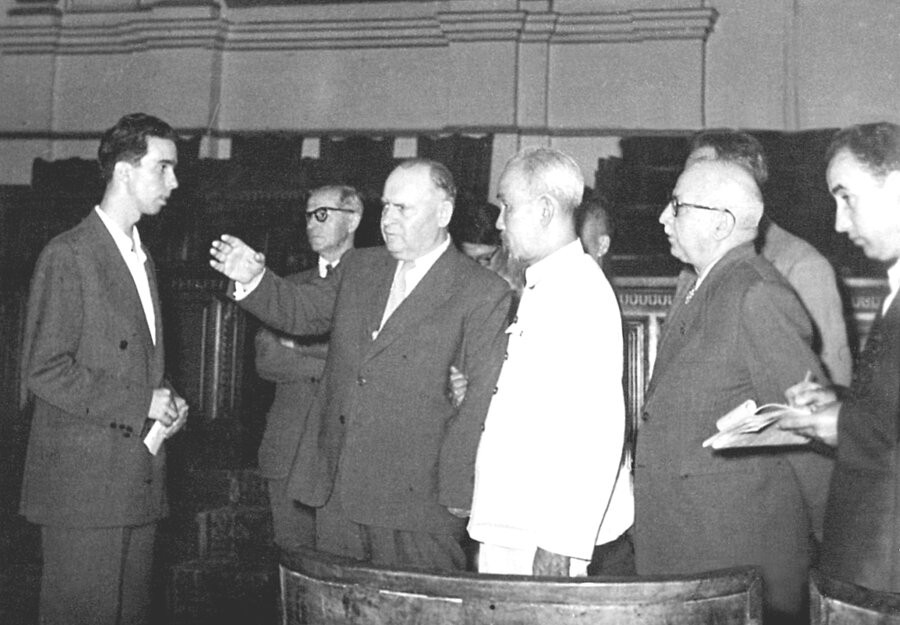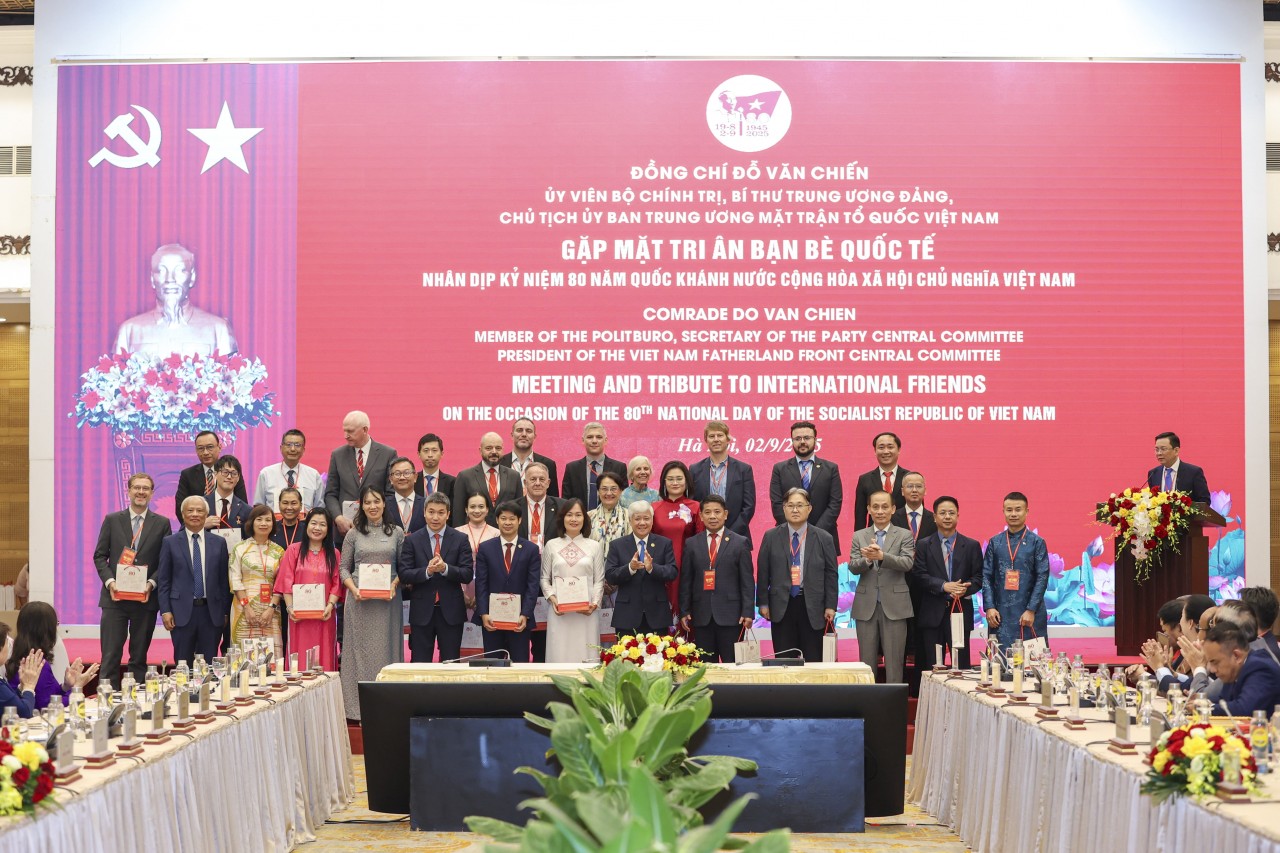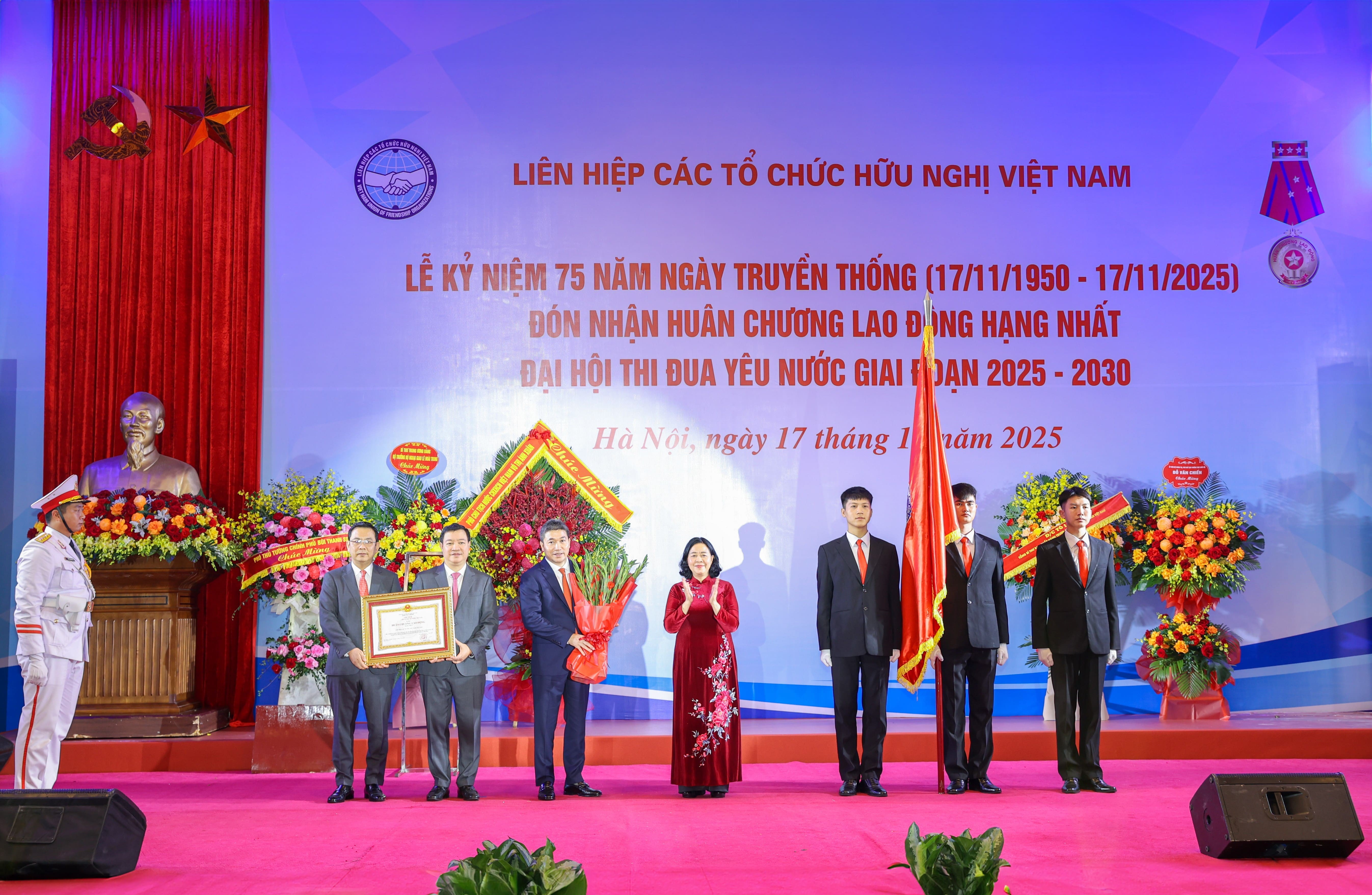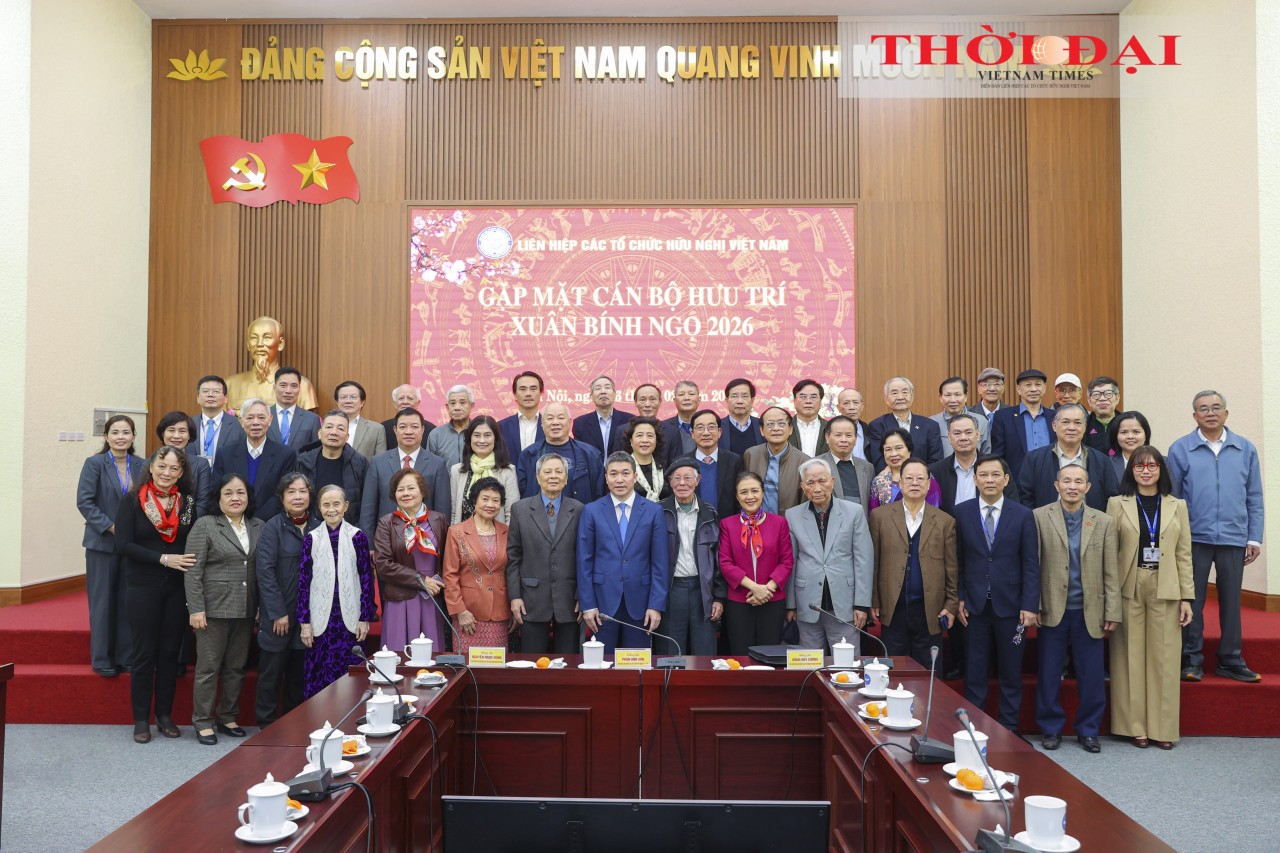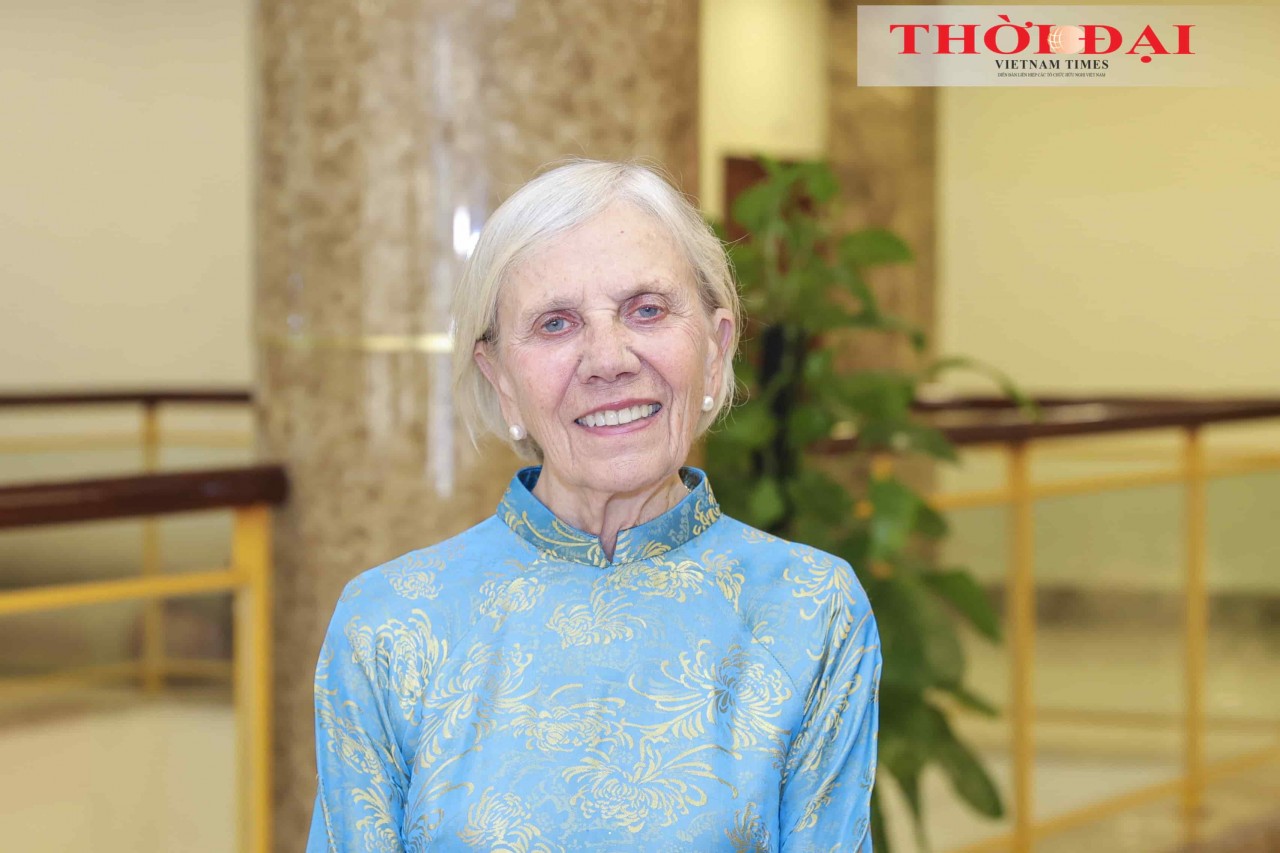Some Reflections on Implementing Ho Chi Minh’s Ideology on Vietnam’s People-to-People Diplomacy over the Past 80 Years
| President of Switzerland-Vietnam Friendship Association Commends Vietnam’s 80 Years of Progress | |
| Vietnam Is a Dynamic Country in Multilateral Diplomacy |
In these proud and vibrant days, as the entire nation looks toward the 80th anniversary of the August Revolution and the National Day of the Socialist Republic of Vietnam, those working in people-to-people diplomacy cannot help but feel deeply moved when looking back on its formation and development over the past eight decades.
As a great thinker, an eminent cultural figure, a brilliant strategist, and an outstanding practitioner of diplomacy, President Ho Chi Minh recognized early on the role and position of people-to-people diplomacy in the overall Vietnam’s modern foreign policy. His thoughts on people-to-people diplomacy are a precious legacy, vitally important for the establishment and development of Vietnam’s modern diplomacy, and they hold profound meaning within his system of thought on the Vietnamese revolution.
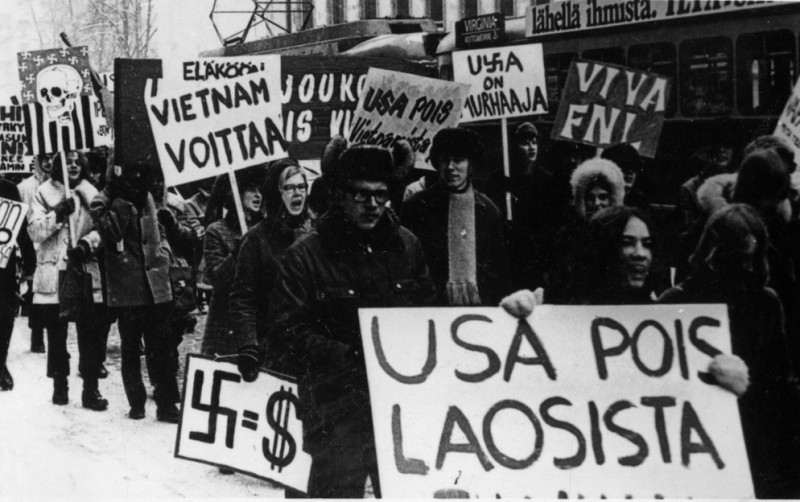 |
| On February 15, 1970, more than 1,000 Finnish citizens marched in Helsinki carrying banners with the slogan “Vietnam Will Win,” demanding that the United States withdraw from Vietnam, Laos, and Cambodia. (Photo: T.L) |
At the heart of this is the great idea of international solidarity. As a small nation often confronted by powerful major countries, Vietnam needed the solidarity of international friends to win independence and freedom for the Fatherland and to build the country’s future. It was essential to organize appropriate forces to mobilize and persuade people across the world to stand in unity and support us for our just cause and for the progressive values of humanity. President Ho Chi Minh’s call, “Unity, unity, great unity. Success, success, great success,” referred not only to national solidarity within Vietnam, but also to solidarity with people around the world to ensure victory for our nation and contribute to the cause of peace and development globally.
President Ho Chi Minh also introduced a crucial insight: people-to-people diplomacy is an extremely effective channel in the service of the revolutionary cause. As an unofficial diplomatic channel, representing the voice of the Vietnamese people, people-to-people diplomacy rested firmly upon the just cause of the Vietnamese nation. It was necessary to deploy this force to rally international solidarity with Vietnam.
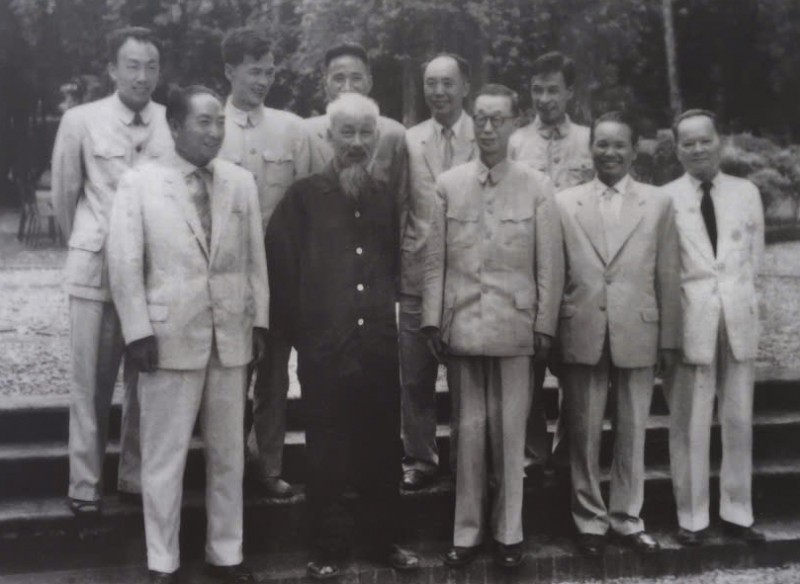 |
| President Ho Chi Minh received the delegation of the China-Vietnam Friendship Association on the occasion of Vietnam’s National Day, September 2, 1966. (Photo: T.L) |
| “It can be said that over the past 80 years, guided by President Ho Chi Minh’s ideology and the leadership of the Party, in close coordination with Party diplomacy and State diplomacy, with the participation of people from all walks of life in the country and the support of progressive peoples worldwide, people-to-people diplomacy has made a worthy contribution to our overall foreign policy. It has created a popular foundation, a favorable social and public environment for our official relations with other countries, serving the legitimate interests of the nation and the progressive values of humanity,” said Vu Xuan Hong. |
President Ho Chi Minh also advanced a particularly important concept: the seamless combination of the three pillars of Vietnam’s diplomacy - Party diplomacy, State diplomacy, and people-to-people diplomacy. Within this triad, people-to-people diplomacy holds a unique position, serving the cause of Party diplomacy and supporting State diplomacy. People-to-people diplomacy must be highly flexible, proactive, and sincere, always guided by the principle of “taking the people as the root.” It must enable the broad participation of mass organizations and popular forces, with dedicated institutions serving as nuclei for the activities of people-to-people diplomacy.
The great ideas of President Ho Chi Minh have accompanied us throughout the 80-year history of the nation and served as a guiding compass for Vietnam’s people-to-people diplomacy. Beyond formulating profoundly important concepts in this field, he also directly oversaw organizational work, laying the foundation for the system of Vietnam’s people-to-people diplomacy.
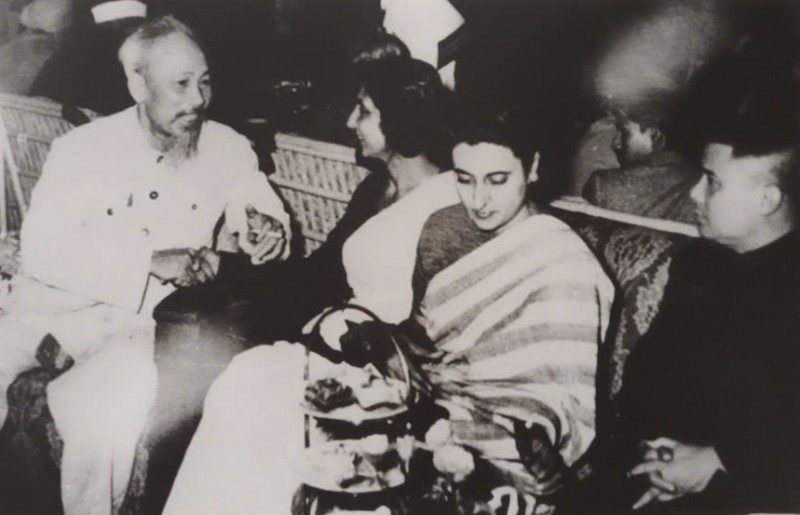 |
| President Ho Chi Minh receiving I. Gandhi and Aruna Asaf Ali, Indian peace activists, February 1958. (Photo: T.L) |
Barely a month after delivering the Declaration of Independence on September 2, 1945, on October 17 of the same year, he established the Vietnam-US Friendship Association, the predecessor of today’s Vietnam-US Society. In 1946, he created the Vietnam-China Friendship Association, the forerunner of the current Vietnam-China Friendship Association. By 1950, he directed the establishment of the Vietnam-Soviet Friendship Association (now the Vietnam-Russia Friendship Association). He also initiated the Committee for the Protection of World Peace of Vietnam and called on Vietnamese people-to-people organizations to participate in the activities of international democratic organizations. These were crucial organizational foundations for Vietnam’s people-to-people diplomacy, enduring to this day, and demonstrated Ho Chi Minh’s strategic vision in integrating people-to-people diplomacy into building friendly and cooperative relations with major powers and addressing global issues of the time.
Seamless Coordination of the “Three Pillars”
From the earliest years of the Democratic Republic of Vietnam, people-to-people diplomacy was methodically organized, allowing these associations to become part of the country’s overall foreign activities. Their work focused on major powers such as the United States, China, the Soviet Union, as well as Laos, Cambodia, and international democratic organizations, thereby contributing to multilateral efforts for global peace and development. Later, under the leadership of President Ho Chi Minh and the Party, additional friendship associations were established with countries in Europe, Asia, and beyond, gradually forming a united front of peoples worldwide in support of Vietnam.
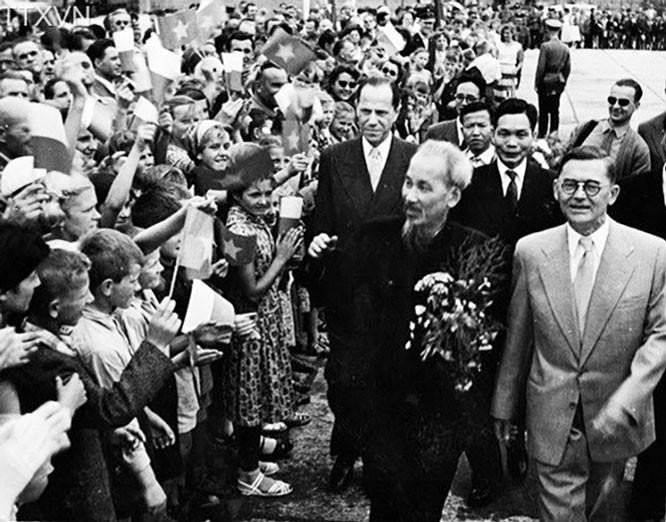 |
| Polish citizens warmly welcomed President Ho Chi Minh and the delegation of the Government of the Democratic Republic of Vietnam, July 1957. (Photo: T.L) |
| “These days, those engaged in people-to-people diplomacy take special pride in the recognition of former Vice President Nguyen Thi Binh, who has just been awarded the title Hero of Labor by the Party and State. She is an outstanding diplomat of Vietnam, former Minister of Foreign Affairs of the Provisional Revolutionary Government of the Republic of South Vietnam, former Head of the Negotiating Delegation at the Paris Conference, former Deputy Head of the Party’s Central Commission for External Relations, and former President of the Viet Nam Union of Friendship Organizations. She is regarded as the ‘elder sister’ of Vietnam’s people-to-people diplomacy and a shining example of its practice. Her life and career are a vivid symbol of the seamless coordination among the three pillars of Vietnam’s diplomacy. This is an immense source of encouragement and inspiration for those working in foreign affairs nationwide, including people-to-people diplomacy”, shared Vu Xuan Hong. |
During the resistance war against the French, under the leadership of President Ho Chi Minh, people-to-people diplomacy created a network of international friends in France itself and across Europe, while also garnering support from the peoples of the Soviet Union and Eastern European socialist countries. These efforts mobilized international public opinion to pressure the colonial authorities to end the war and their domination of Vietnam. French peace activists such as Henri Martin and Raymonde Dien became true banners of solidarity for youth, intellectuals, and ordinary citizens in France, as well as across Europe and beyond, who supported Vietnam’s struggle. This solidarity provided tremendous encouragement, helping Vietnam both resist and rebuild, culminating in the resounding victory of Dien Bien Phu, which shook the world.
In the resistance war against the United States for national salvation and reunification, people-to-people diplomacy operated with extraordinary vigor and achieved remarkable results. Vietnam was able to establish a global people’s front unprecedented in the 20th century, rallying solidarity with the Vietnamese people. Working in concert with the nation’s military struggle and political and state diplomacy at each stage, this international solidarity compelled the United States to scale down its war efforts, withdraw its troops, and ultimately paved the way for the triumph of national liberation and reunification in 1975.
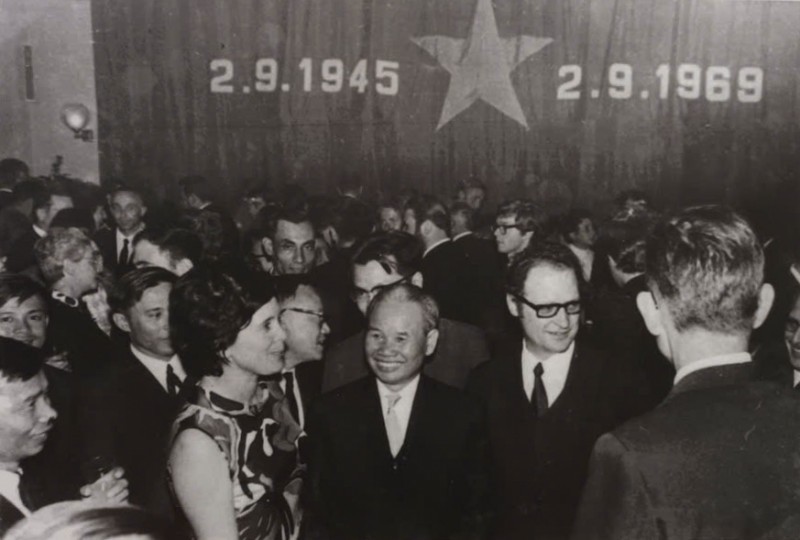 |
| Raymonde Dien and Henri Martin at the office of the Vietnamese Delegation, Paris, September 2, 1969. (Photo: T.L) |
After reunification, Vietnam entered a new phase: overcoming the consequences of war, defending its borders, while simultaneously mobilizing international solidarity to lift the embargo, normalize relations with major powers, and enhance international cooperation to rebuild the country. People-to-people diplomacy continued to write glorious chapters in coordination with Party diplomacy, State diplomacy, and mass organizations, fulfilling the foreign policy tasks of Vietnam in this period.
Entering the era of integration and development, people-to-people diplomacy has strengthened information exchange and friendship exchanges with partners worldwide. These efforts not only reflect the Vietnamese people’s aspirations for peace and development, but also affirm Vietnam’s readiness to be a friend, a reliable partner, and a responsible member of the international community, striving for peace, friendship, and mutually beneficial cooperation among nations.
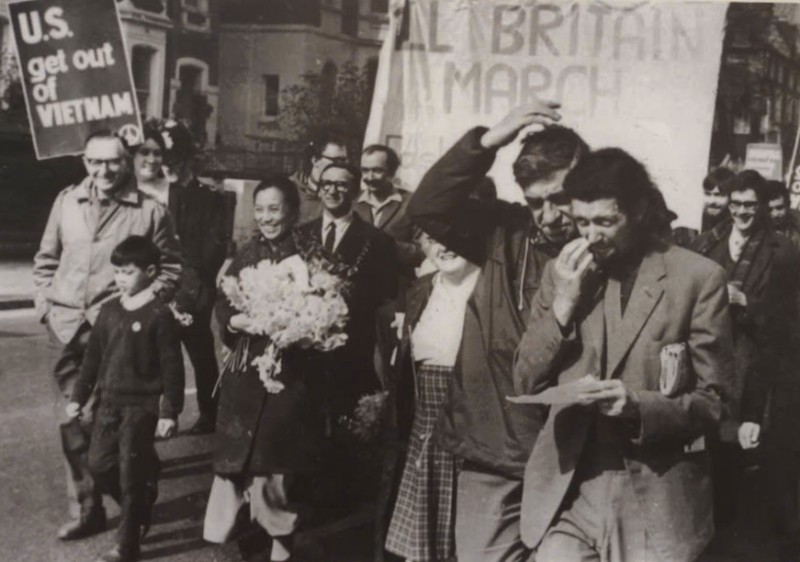 |
| Former Vice President Nguyen Thi Binh participated in a street demonstration with British citizens demanding “US out of Vietnam.” (Photo: T.L) |
Particularly under the leadership of the Party’s external relations, Vietnam has closely aligned people-to-people diplomacy with State diplomacy through the establishment of friendship associations with many countries. Numerous Vietnam friendship associations and solidarity organizations were founded even before our country established official diplomatic relations with those nations. Others were created later to deepen bilateral ties. For example, after Vietnam joined ASEAN in 1995, within a very short time, we established the Vietnam-ASEAN Friendship Association and almost all bilateral friendship associations with ASEAN member states.
People-to-People Diplomacy Means the People Conducting Diplomacy
The experiences gained over the years are invaluable lessons for the Vietnamese people. Our people have reached out to and mobilized numerous international movements in support of Vietnam, spanning all ages and social strata, from world leaders to ordinary citizens. For the conscience of the era, for the just cause of the Vietnamese people, against war and for peace, countless organizations, groups, associations, and solidarity movements arose across countries and continents, resonating with Vietnam at each stage of the resistance against the US and in national reconstruction thereafter. Notably, our engagement with the American anti-war movement made an important contribution to hastening the end of the war in Vietnam.
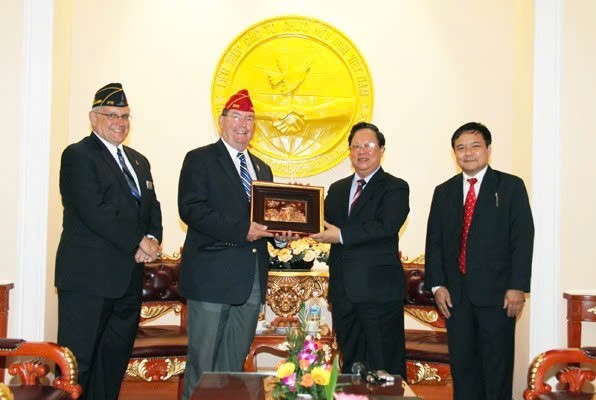 |
| Leaders of the Viet Nam Union of Friendship Organizations received a high-level delegation from the American Legion, June 2013. (Photo: T.L) |
We successfully organized many solidarity activities in defense of our borders, while upholding Vietnam’s just cause in assisting the Cambodian people. Particularly in breaking the blockade and embargo to normalize relations with major powers, people-to-people diplomacy carried out highly creative and effective activities, engaging politicians and broad segments of society in other countries, and applying diverse, flexible forms of outreach to promote understanding, trust, and mutual respect. Over time, our people’s diplomacy forces grew stronger, with active participation not only from friendship and solidarity organizations, but also from the Vietnam Fatherland Front and its member organizations: trade unions, women’s, youth, farmers’, veterans’, the Red Cross, journalists, victims of Agent Orange, the Vietnam Chamber of Commerce and Industry, and many others. This breadth of participation has enriched people-to-people diplomacy, diversified partners, and created a vibrant landscape of activities both nationally and locally.
Through these efforts, we have built a strong social foundation that supports official diplomacy by the State and foreign policy by the Party, thereby creating favorable conditions for Vietnam’s overall external relations.
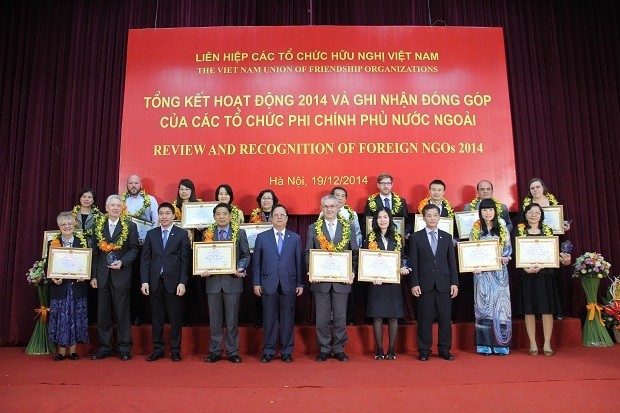 |
| The conference reviews and acknowledges the contributions of foreign NGOs to Vietnam, 2024. (Photo: T.L) |
In strengthening mutual understanding and attracting international support for overcoming war consequences, countless organizations and individuals have engaged with Vietnam through the channel of people-to-people diplomacy. Vietnam has facilitated their contributions within a clear and regulated framework, enabling assistance in poverty reduction, mine clearance, addressing the consequences of Agent Orange, and supporting infrastructure in education, healthcare, and the environment. These organizations and individuals, having gained direct understanding of Vietnam and its people, have also influenced policymakers and paved the way for enterprises and governments to expand cooperation with Vietnam during this period.
| “Vietnam is now entering a new era - the era of national rise and development. I recall President Ho Chi Minh’s words: ‘In any circumstance, the Vietnamese revolution always requires the solidarity of international friends.’ This was a core principle of his thinking on Vietnam’s relationship with the world, particularly people-to-people relations. With this in mind, as people-to-people organizations are being consolidated under the Vietnam Fatherland Front, people-to-people diplomacy is facing a historic opportunity to reorganize, multiply its strengths, and connect with international partners to meet the demands of the new era,” shared Vu Xuan Hong. |
With the organizational reforms being carried out under the leadership of General Secretary To Lam and our Party, the Vietnam Fatherland Front is bringing together mass organizations, socio-political groups, people-to-people organizations, and all strata of society under one common house. This is an opportunity to strengthen and rejuvenate the forces of people-to-people diplomacy in the new context.
One important event we are currently witnessing is the campaign launched by the Vietnam Red Cross and the Vietnam Fatherland Front to support the Cuban people. This initiative has drawn wide participation from across society and all member organizations of the Fatherland Front, achieving impressive results and leaving a positive mark among international friends. This proves that, with proper coordination and resonant messages, people-to-people diplomacy can mobilize the voluntary participation of broad masses of Vietnamese citizens. This is the opportunity for people-to-people diplomacy to renew itself, strengthen connections, and engage more effectively with international friends in the current situation.
In recent years, Vietnam has enhanced international cooperation, closely coordinating with State diplomacy and Party diplomacy to elevate Vietnam’s international standing and deepen substantive relations with partners worldwide.
In line with President Ho Chi Minh’s guidance, people-to-people diplomacy truly means diplomacy by the people. Vietnam has built a robust force where every citizen can be seen as a diplomat in their own right. Specialized organizations for peace, solidarity, friendship, cooperation, and development, as well as dedicated foreign affairs personnel within each member organization of the Fatherland Front, have been established. Today, international relations reach into every household, even remote areas, through a variety of exchanges and platforms. This enables citizens to actively and proactively participate in people-to-people diplomacy.
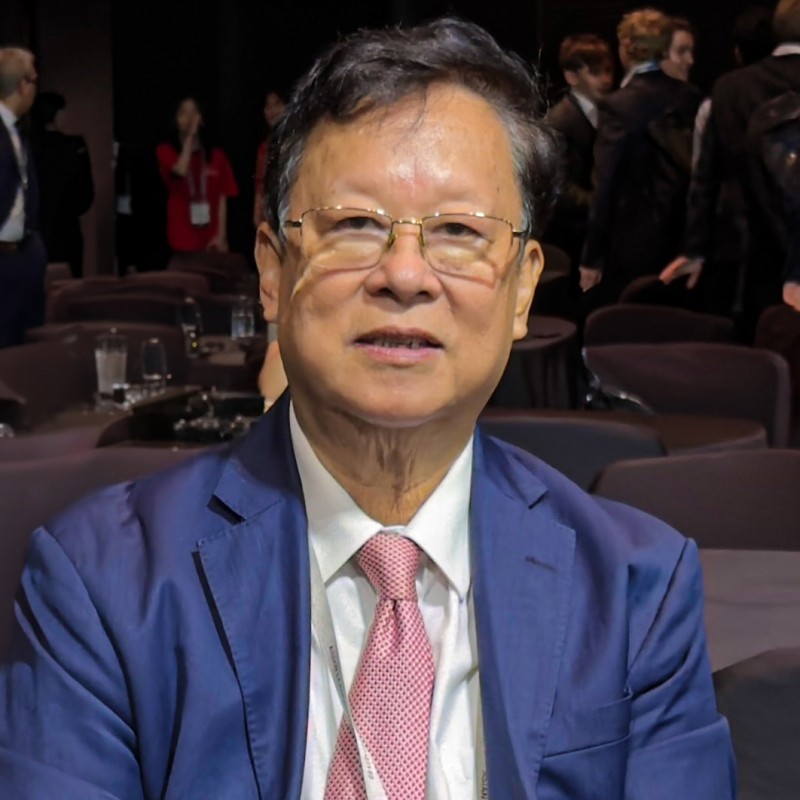 |
| Former President of the Viet Nam Union of Friendship Organizations Vu Xuan Hong. |
We have also leveraged multiple channels, including culture and people-to-people exchanges, through friendship activities, seminars, workshops, and visits designed to promote international understanding of Vietnam, highlighting the Party and State’s correct policies on sustainable development, investment cooperation, and cultural exchange. These efforts help connect global friends with Vietnam.
The overseas Vietnamese community, now numbering in the millions, is also a significant force for people-to-people diplomacy. Overseas Vietnamese play an active role in sharing the cultural and historical values of our people, while serving as bridges for economic and cultural cooperation. This is an important resource that Vietnam must continue to engage in people-to-people diplomacy.
On the foundation of President Ho Chi Minh’s ideology, and with the opportunity to reorganize people-to-people diplomacy, I am confident that in the new context, under the direct leadership of the Vietnam Fatherland Front, this field will inherit and build upon past achievements, fulfilling its mission in the new era, writing new glorious chapters, implementing the Party and State’s foreign policy, and mobilizing broad participation of the people in diplomacy in a more extensive, flexible, creative, and effective manner.
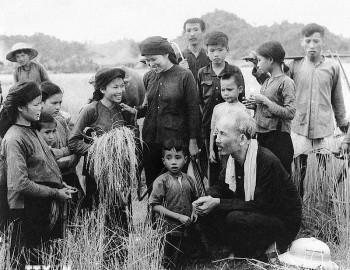 | President Ho Chi Minh's ideology remains relevant today: Argentinian journalists President Ho Chi Minh went down in history as a distinguished politician of the international communist movement and a great leader of the Vietnamese people, ... |
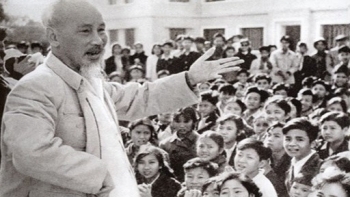 | Ho Chi Minh's Ideology on Revolutionary Moral Education for Students Vietnamese youth today have better environments and conditions to study, train, mature, improve their qualifications, form revolutionary ideals, morality, and cultural lifestyle, gradually completing their ... |
In topics
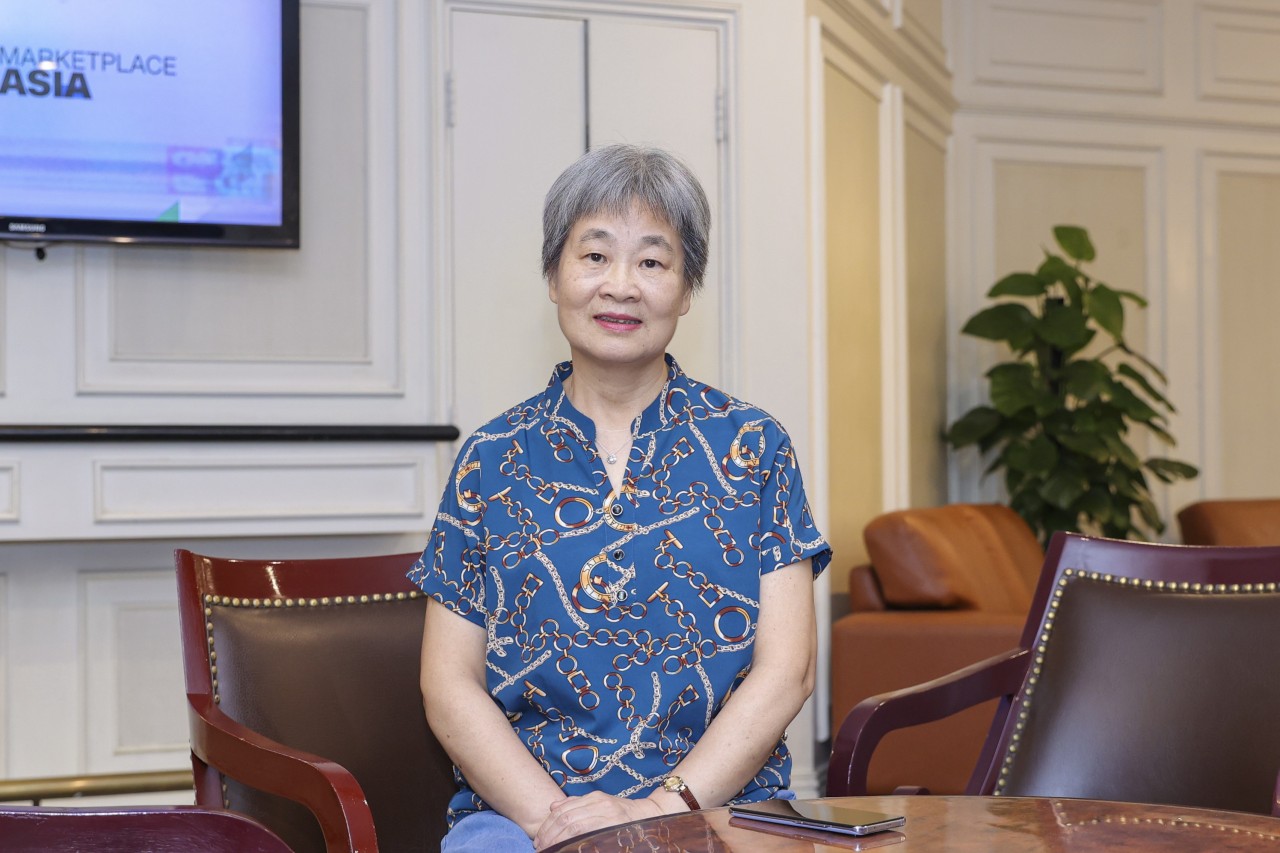 Friendship
Friendship
Chinese Friends Share Memories and Affection on Vietnam’s 80th National Day
 Friendship
Friendship
President Ho Chi Minh’s Goddaughter Shares Reflections on Vietnam’s “Extraordinary Resilience”
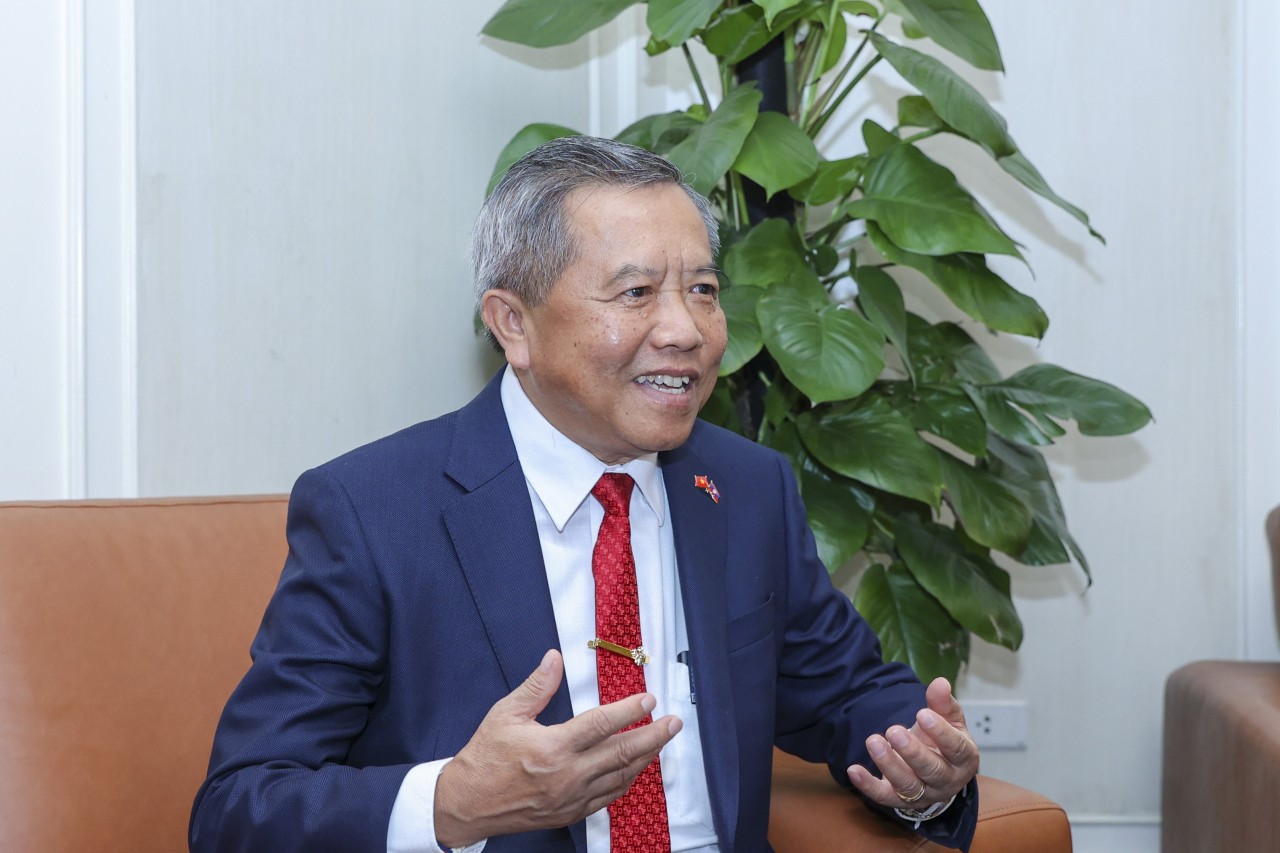 Friendship
Friendship
Boviengkham Vongdara: I am Impressed by Vietnam’s Growth and Spirit of Solidarity
Recommended
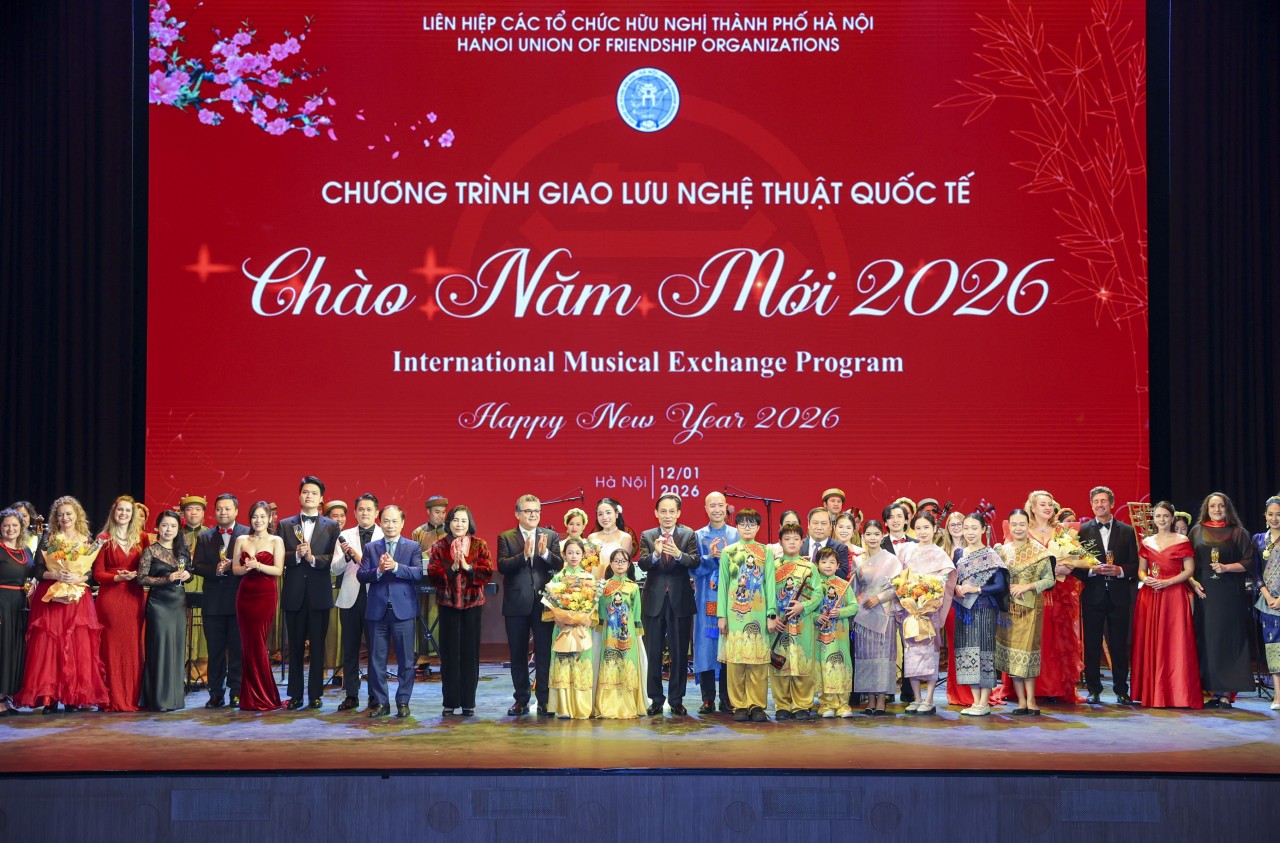 Friendship
Friendship
Hanoi Union of Friendship Organizations: Spreading Values of Peace in Heart of Capital
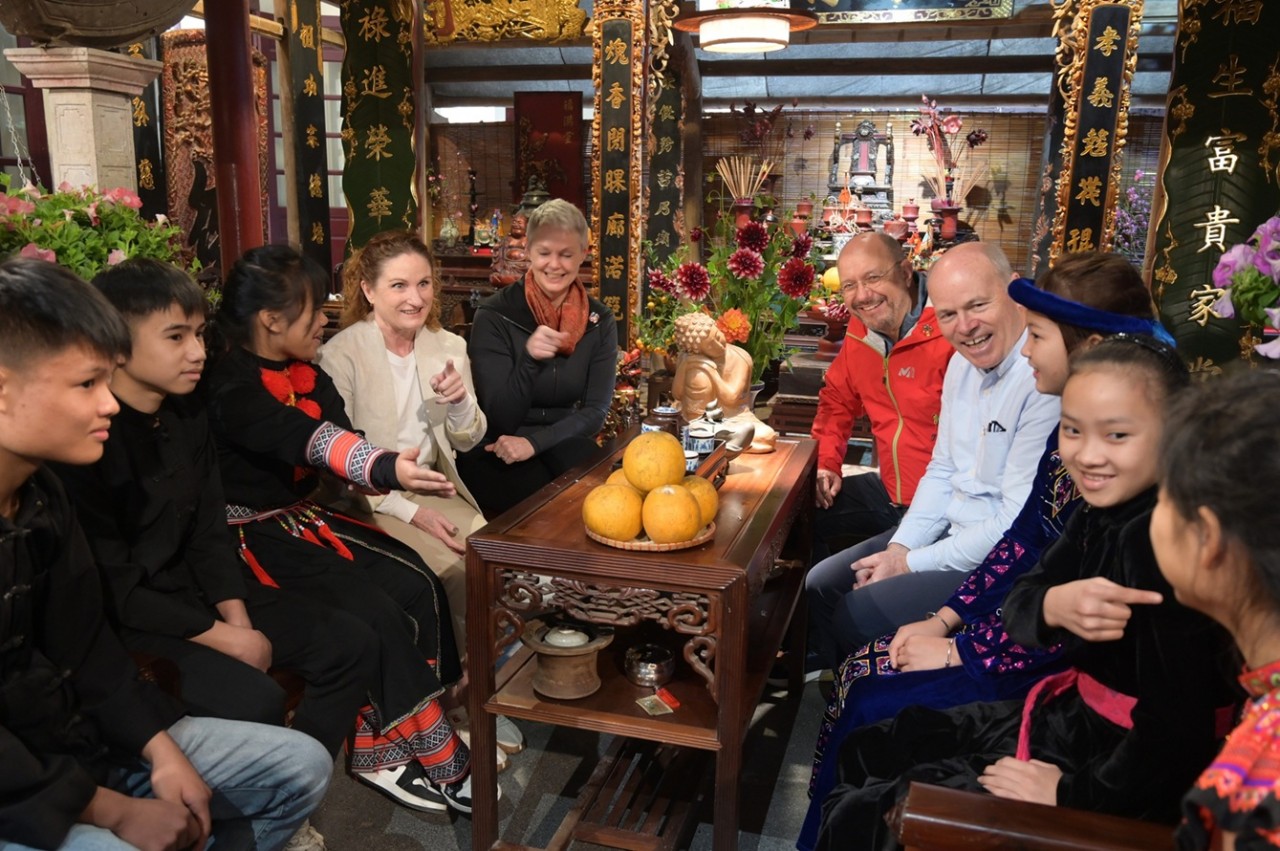 Friendship
Friendship
G4 Ambassadors to Vietnam Extend Greetings for the New Year of the Horse
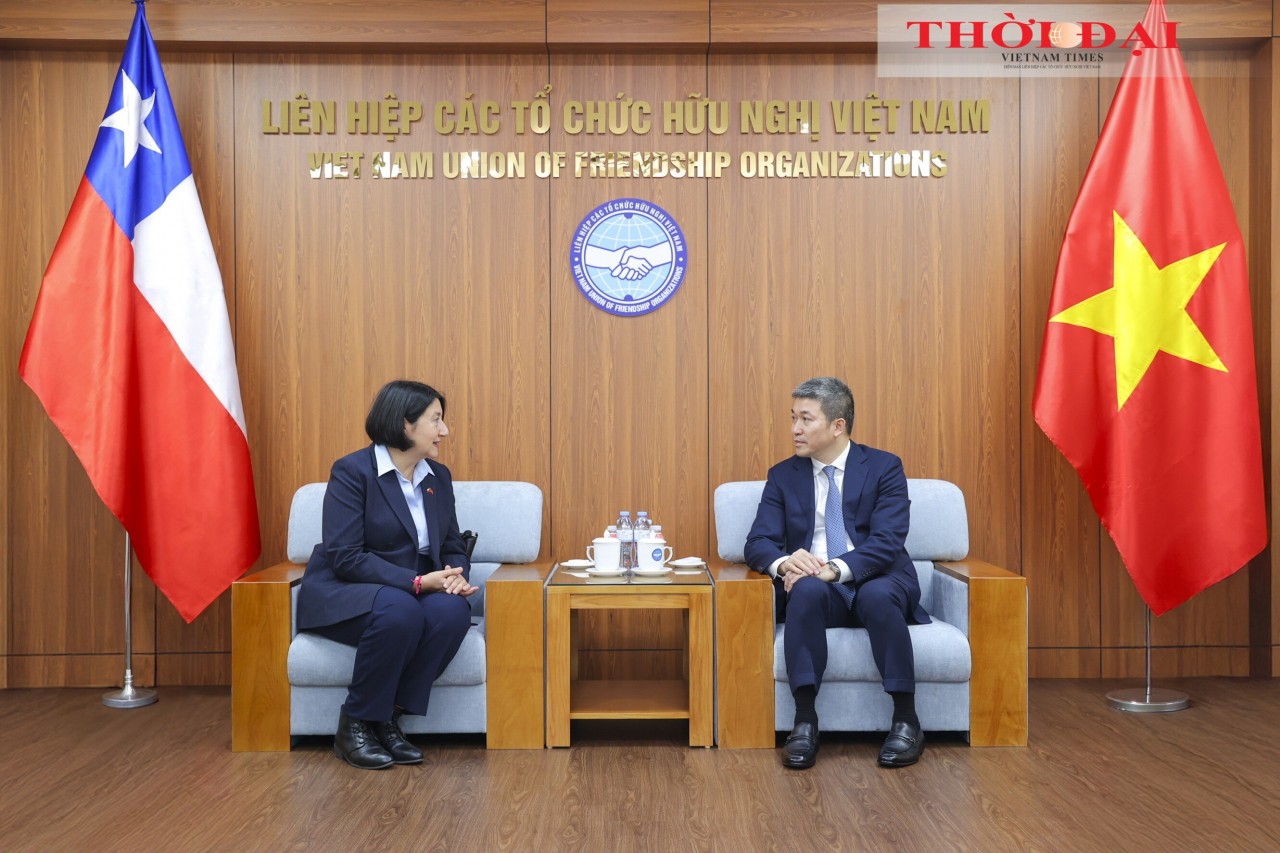 Friendship
Friendship
Promoting People-to-People Cooperation on the Occasion of the 55th Anniversary of Vietnam-Chile Relations
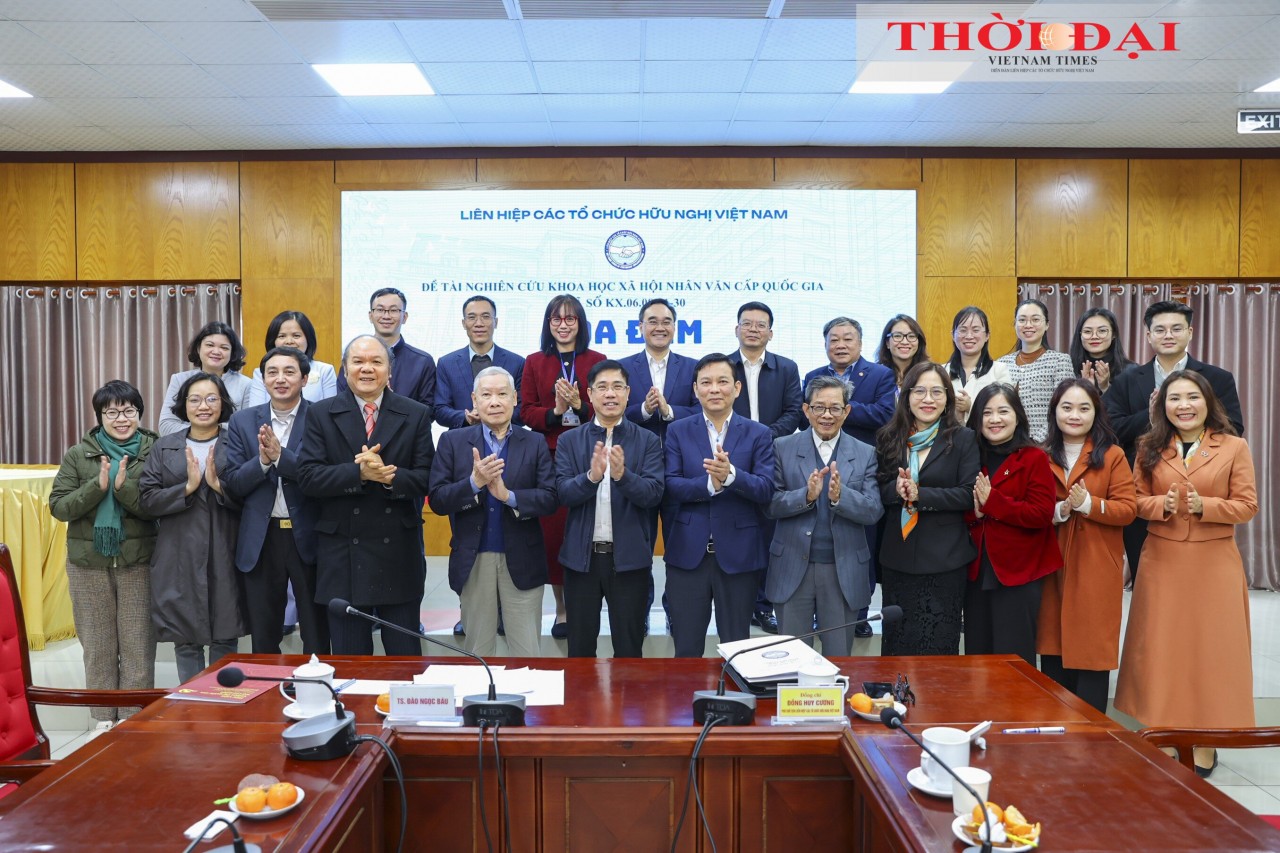 Focus
Focus
Seminar on “The Scientific Foundations of People-to-People Diplomacy in the World”
Popular article
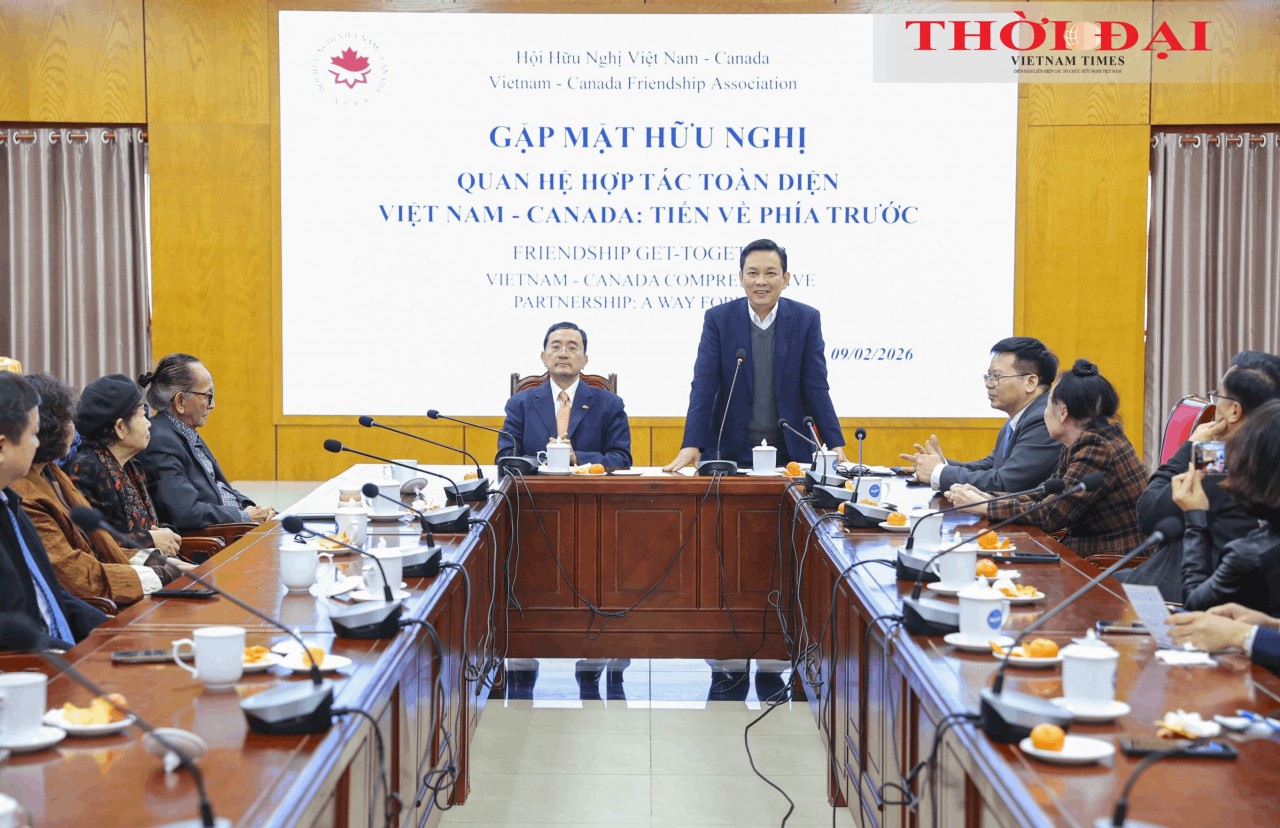 Friendship
Friendship
Vietnam-Canada Friendship Meeting: Advancing Comprehensive Cooperation through People-to-People Diplomacy
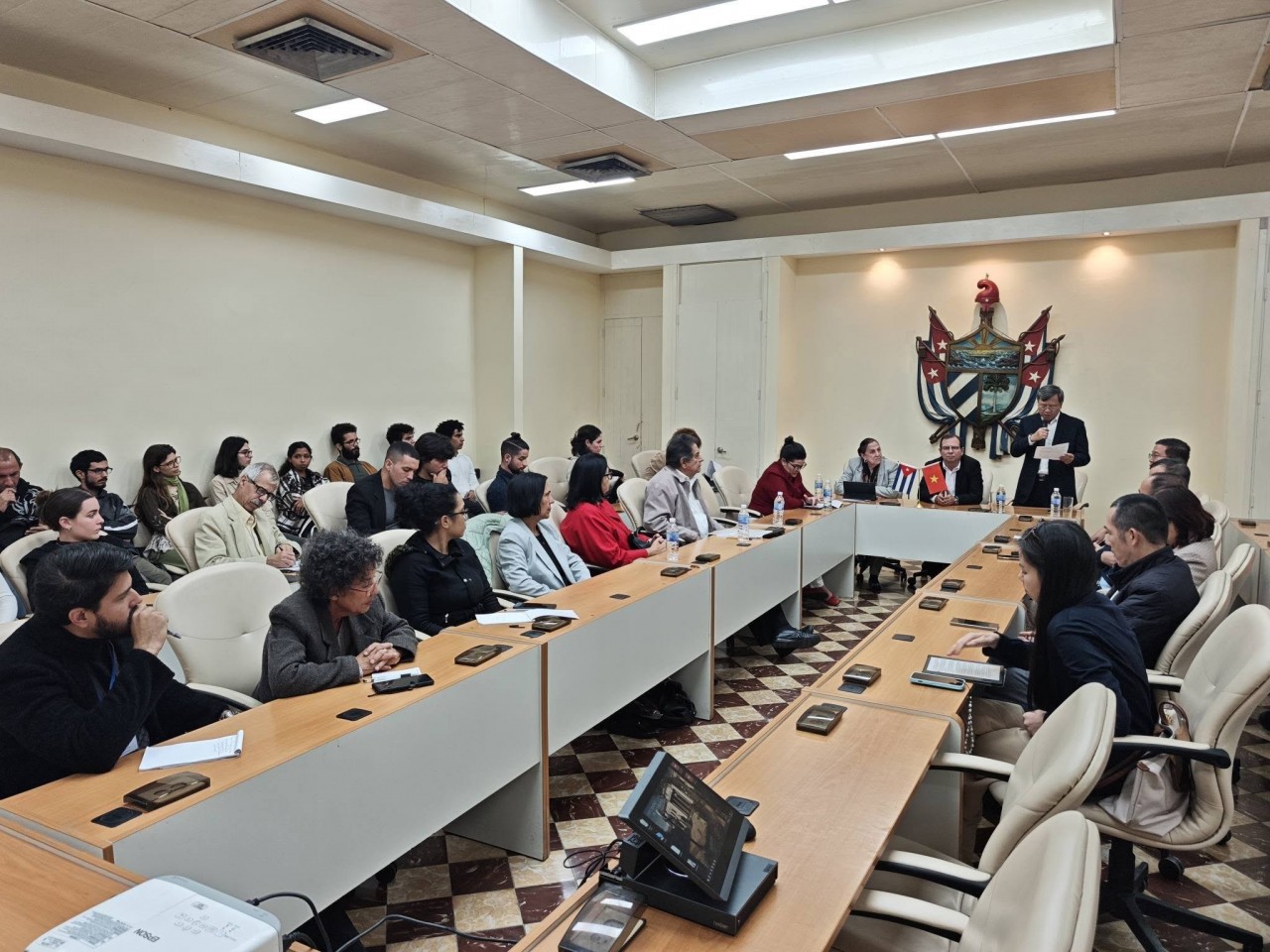 Friendship
Friendship
Seminar in Cuba Commemorates the 60th Anniversary of Fidel Castro’s Historic Statement on Vietnam
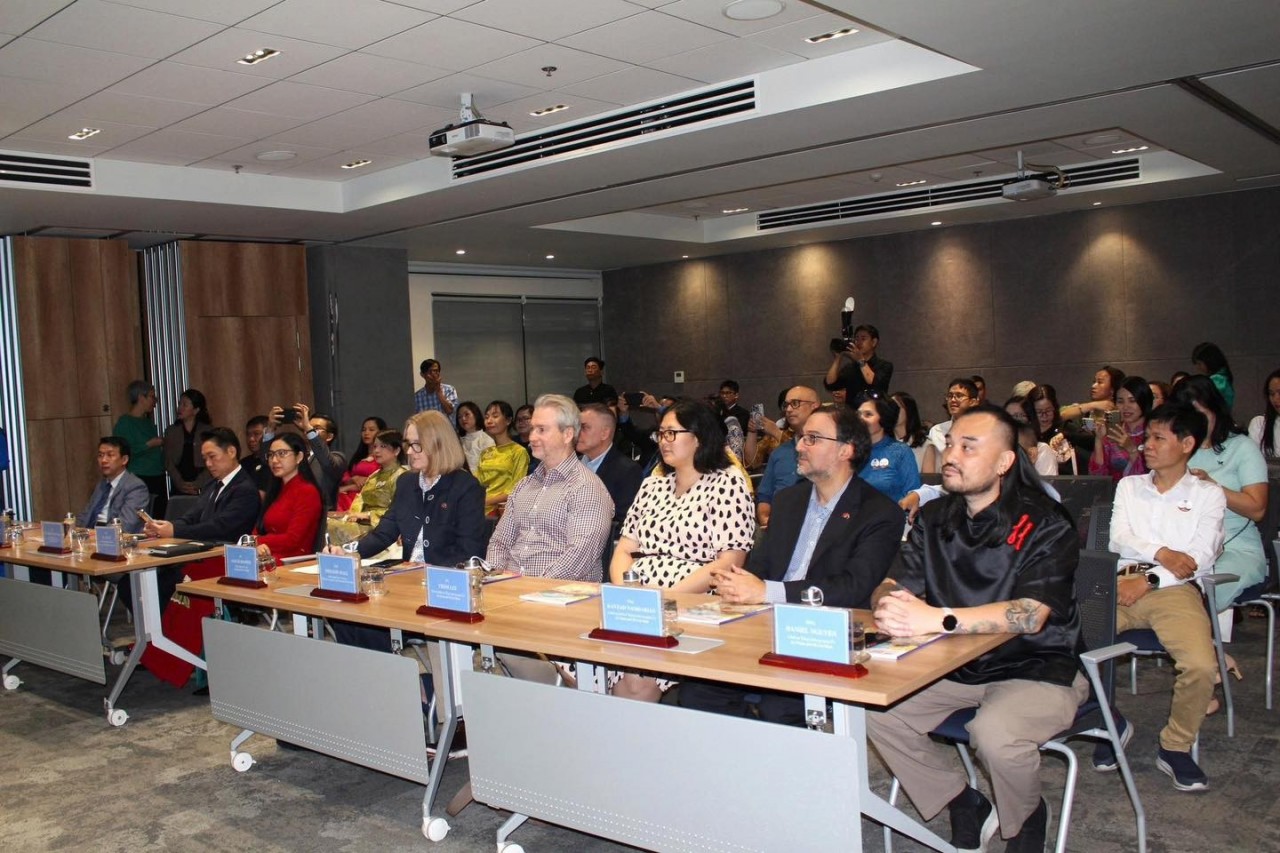 Friendship
Friendship
Ho Chi Minh City Promotes In-depth People-to-people Exchanges with Australia
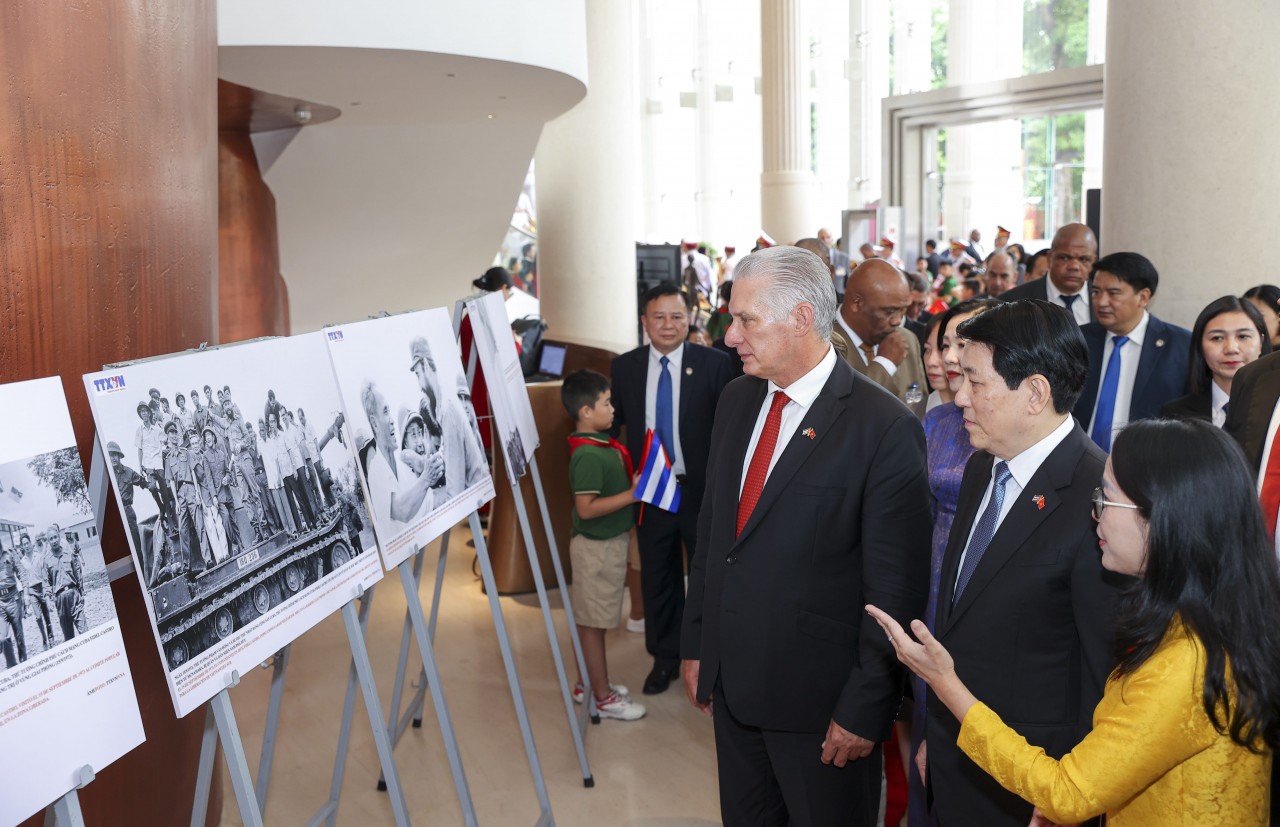 Friendship
Friendship




